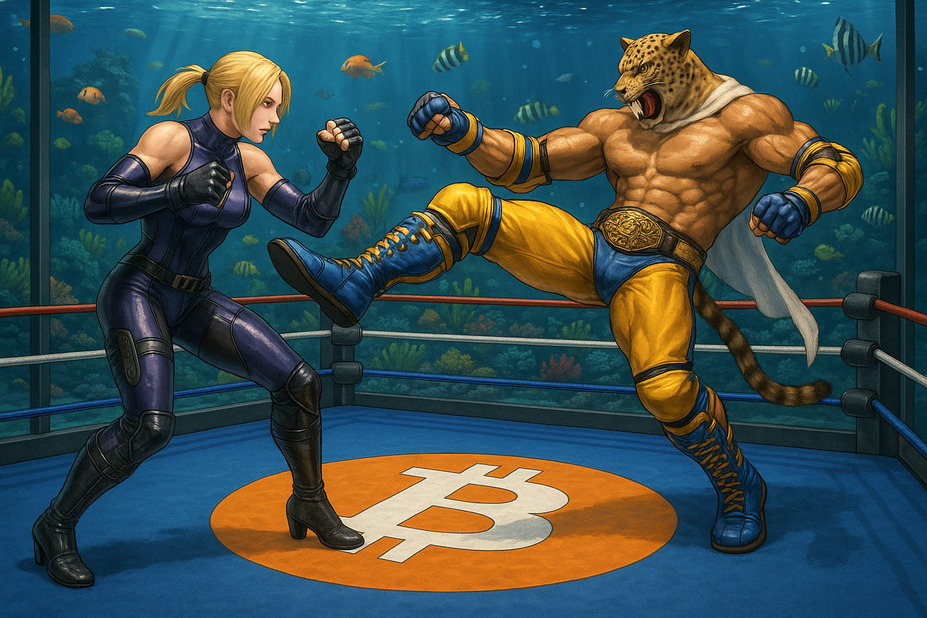Crypto in gaming: navigating the opportunities and avoiding the risks

The world of decentralized gaming is at a pivotal moment. On one hand, we see the promise of empowering players through crypto payroll and blockchain-based payments. On the other hand, the potential for exploitation casts a long shadow. How can we navigate this complex landscape? Let’s explore the forces shaping the future of gaming.
The dark side of decentralized gaming
Decentralized gaming ecosystems offer exciting new possibilities for player ownership and economic participation. However, they also carry significant risks of economic exploitation. Vulnerable players, often from lower-income backgrounds, can find themselves trapped in a cycle of endless labor. Games like Axie Infinity serve as a warning, where players become caught in a grind that yields increasingly smaller rewards. The gap between the wealthy and the working class grows wider within these ecosystems.
One particularly troubling trend is the targeting of at-risk populations. Early investors or NFT holders may lend assets to players in developing countries, who then become “scholars” and engage in exhaustive gameplay to earn a living. This is reminiscent of “gold farming,” where players work long hours under exploitative conditions and may face coercive agreements or inappropriate demands.
Financial risks further complicate the situation. As game assets become increasingly like financial products, players face a barrage of threats, including hacking, scams, and unauthorized transactions. The lack of robust consumer protections and data security standards in decentralized games leaves players vulnerable to financial harm.
A Beacon of hope: blockchain payments and smart contracts
Amidst the chaos, there are reasons for optimism. Decentralized gaming platforms like CHIPS are working to create a fairer gaming environment. By using blockchain technology, they aim to ensure fairness through provably fair mechanisms and smart contracts.
Once deployed on a blockchain, smart contracts make the game’s rules and mechanics tamper-proof. This decentralization eliminates the possibility for any single entity to manipulate game results, leading to a more honest gaming experience.
Additionally, blockchain-based random number generation (RNG) ensures that in-game events, such as loot drops or wins, are genuinely random and unbiased. This transparency allows players to verify the fairness of outcomes through cryptographic proofs, building trust in the system.
The regulatory minefield: crypto and HR intersect
The emergence of Web3 casinos and gaming platforms poses a significant challenge to traditional gaming regulations and player protections. These decentralized platforms often operate globally without centralized control, making it difficult to enforce existing gambling laws or licensing requirements.
As traditional protections become less relevant, player security depends more on the integrity of smart contracts and blockchain transparency. While this reduces trust issues with operators, it raises concerns about what happens when disputes or fraud occur. Decentralized platforms typically lack centralized customer support or dispute resolution mechanisms.
New governance models are emerging that allow players to become stakeholders through token ownership, enabling them to participate in governance decisions and revenue sharing. This democratization of control requires new regulatory frameworks to address token economics, securities laws, and consumer rights in decentralized environments.
The CHIPS act: a catalyst or a barrier?
The CHIPS Act has the potential to democratize the gaming industry by supporting labor organizations and strengthening the semiconductor supply chain. This could empower developers and workers through stronger unions, giving creators more voice and power compared to large corporations.
However, challenges remain. Chip shortages and export restrictions on advanced chips are already disrupting supply chains, increasing costs, and limiting access to critical hardware components for gaming consoles and devices. These factors could create new barriers to entry for smaller developers and hardware manufacturers who rely on affordable and accessible chips.
In essence, while the CHIPS Act aims to promote democratization through labor empowerment and domestic chip production, export controls and ongoing chip shortages may unintentionally create new barriers to entry, especially for smaller players and international participants in the gaming industry.
In conclusion: a precarious future
As decentralized gaming continues to evolve, it presents both opportunities and risks. The potential for economic empowerment through blockchain technology and decentralized platforms is significant, but the dangers of exploitation and regulatory complexities are also substantial.
The future of decentralized gaming will depend on how effectively these platforms can balance innovation with consumer safety and legal compliance. The path ahead is filled with challenges, but also with possibilities.










